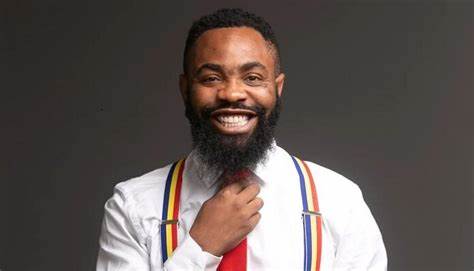Nigerian comedian and actor Woli Arole has sparked debate on social media after strongly condemning the growing trend of women attending public events without wearing bras.
In a lengthy Instagram post, Arole described the practice as “highly indecent” and a threat to moral standards in society. He warned that if such dressing becomes normalised, future generations could lose their sense of decency.
The comedian observed that braless dressing has become more noticeable at gatherings such as weddings, birthday parties, and even corporate events.
According to him, the trend is not only inappropriate but also distracting in environments that should demand respect and formality.
“It is highly indecent for a lady to go out to a public event and wear clothes without a bra, for God’s sake,” Arole wrote. “You see wedding guests without a bra. Haaaaa! Birthday guests without bra. It’s bad! Be decent. Anyone who defends braless outing is also indecent in her thought.”
Read Also: Vigilantes assault, strip female corps member in Anambra
Arole expressed concern that silence on the matter could encourage more people to adopt the practice, thereby weakening society’s moral fabric. He argued that a culture that glorifies braless dressing is indirectly celebrating indecency and undermining values that hold communities together.
“With the way things are going, if we don’t speak up about some things, we might not have morality again,” he said. “A generation might not have morality again.”
Arole’s question stirs conversation
Responding to the popular argument that women have the right to dress as they choose, Arole questioned whether such freedom would be accepted in formal settings. He used job interviews as an example, asking whether a woman could confidently appear braless before a hiring panel and still expect to be taken seriously.
“Can you go bra-less to an interview?” he asked. “You are going for an interview for what you have been believing God for, and you go bra-less, to a corporate organisation that wants to pay two million.”
For him, the defence of braless fashion under the phrase “my body, my choice” is misplaced and harmful. “If they don’t give me a job, you see, we are glorifying nonsense, madness, insanity,” Arole declared. “Me, I will speak up. Because we will lack sense in the generation.”
Arole also argued that braless dressing creates unnecessary distraction at social events. He claimed that women who choose to appear this way risk drawing unwanted attention from men, including married men, which could cause discomfort and tension.
“To an event, you are seated, you are distracting, and you are even nearly distracting the husband, distracting the groomsmen,” he wrote. “And you are saying, ‘my body, my choice.’ Oga, it’s wrong.”
The comedian’s remarks quickly gained traction online, drawing both praise and criticism. Supporters applauded his boldness, saying that public figures should speak against rising trends that undermine cultural values. Some agreed that braless fashion was indecent, especially at weddings and formal events where modesty is expected.
On the other hand, critics accused Arole of being judgmental and attempting to police women’s bodies. They argued that women have the right to dress however they choose without being subjected to moral lectures or blamed for distracting men. For them, the comedian’s comments reflect outdated views on women’s fashion and personal freedom.
The controversy highlights a wider debate in Nigeria about fashion, morality, and cultural expectations. While younger generations often push boundaries with bold fashion choices, older and more conservative voices continue to call for moderation and respect for traditional values.
Arole’s comments echo similar concerns raised by other entertainers, religious leaders, and cultural commentators in recent years. Many of them argue that the rise of revealing fashion is a sign of declining morals, while others see it as part of global fashion trends that Nigerians are embracing.
Despite the backlash, Arole made it clear that he would not keep silent on issues that he believes threaten social values. “Me, I will speak up,” he insisted, repeating that he intends to defend morality for the next generation.
For now, his remarks have succeeded in reigniting discussions around decency, fashion choices, and freedom of expression in Nigerian society. Whether his critics or his supporters prevail in the argument, one thing is certain: Woli Arole has once again shown his willingness to use his platform to stir conversation on sensitive cultural issues.
Read Also: LASU bans wearing of nose ring, tattoos, others by students



